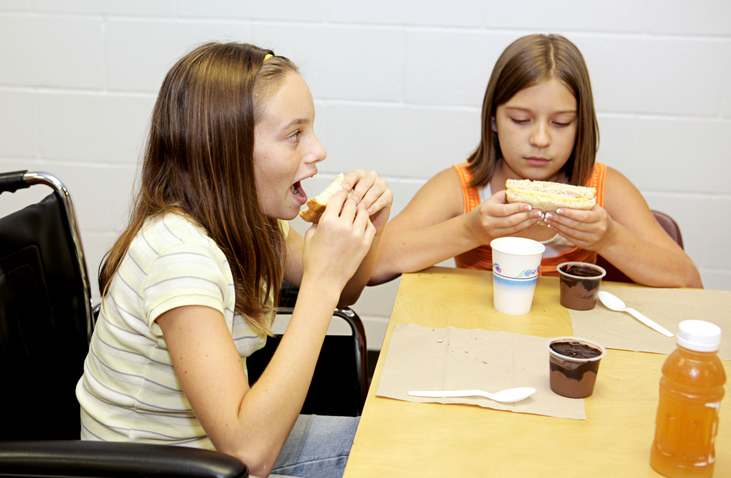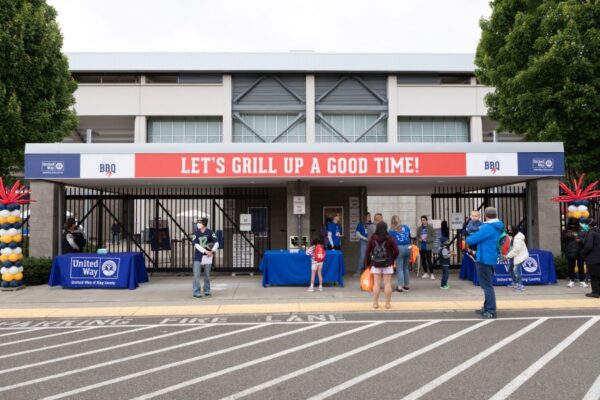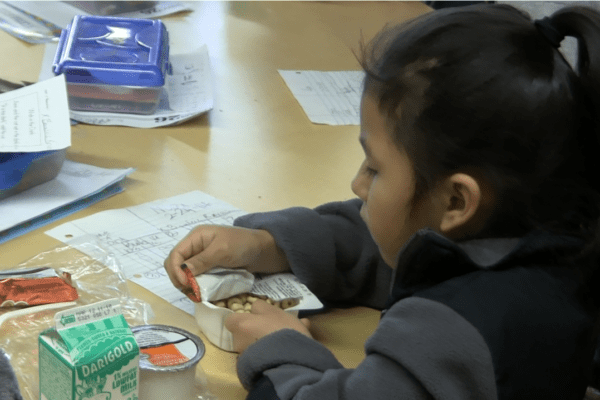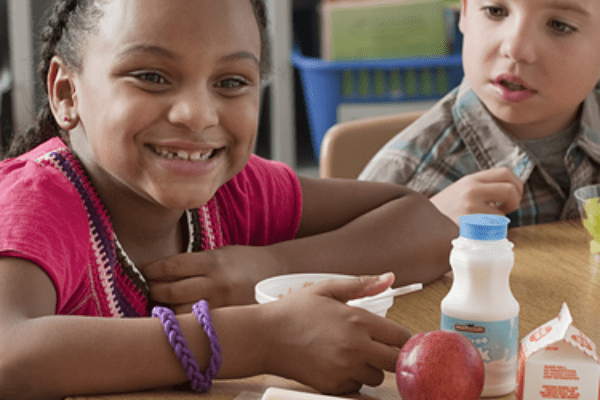United Way, Kaiser Permanente Team Up to Improve Child Nutrition
United Way of King County is partnering with Kaiser Permanente Washington to ensure more school children receive healthy, nutritious food.
A two-year, $300,000 grant from Kaiser Permanente in November of 2021 has bolstered United Way’s child nutrition work. Kaiser Permanente’s funds have helped United Way provide breakfast, afterschool and summer meals to children eligible for the Supplemental Nutrition Assistance Program. That includes our work with Breakfast After the Bell, an innovative and proven approach to increasing participation and access to school breakfast.
This year, Kaiser Permanente’s funding has enabled United Way to connect more than 49,000 additional students to school breakfast across Washington State via Breakfast After the Bell. National data shows that kids who eat breakfast consistently show improvement in academic skills, listen better and have better short-term memory, fewer behavioral issues and higher rates of attendance.
“Our Supplemental Nutrition Assistance Program work is focused on connecting eligible families to the program. A lot of families are eligible for these benefits but don’t know that they’re eligible or have trouble applying,” said Sara Seelmeyer, United Way senior manager of food security & benefits access. “We’re conducting statewide outreach to raise awareness of these benefits and funding a partner agency, WithinReach, to provide direct enrollment support to families. Kaiser Permanente’s support is making all of that possible.”
Seelmeyer said that the Kaiser Permanente grant is partially funding United Way personnel to collaborate with school districts as they implement Breakfast After the Bell in their schools. It also funds start-up and equipment costs associated with Breakfast After the Bell.
“Once you have a school district ready to go, you don’t want equipment to be the final stumbling block,” Seelmeyer said. “The funding is used for everything from milk coolers to insulated bags to get meals to classrooms.
“These are federally reimbursed programs, so the federal government is providing the money for the food and meals that goes to kids. But they are really underutilized,” Seelmeyer added. “So, every kid who gets free lunch at school also qualifies to receive free breakfast. But in Washington, only about one in seven kids who receives free lunch is also getting breakfast.”
In Washington, only about one in seven kids who receives free lunch is also getting breakfast.
Sara Seelmeyer, United Way senior manager of food security & benefits access
Seelmeyer said Kaiser Permanente funding is a sustainable investment because it’s paying for long-term change in schools. “Once you shift breakfast to be part of the school day, that might cost $10,000 in equipment for an elementary school,” added Seelmeyer. “But then they are able to serve three times as many kids school breakfast every single day for years to come.”
United Way is also supporting Kaiser Permanente in its work around equity in school meals programs.
“Specifically, Kaiser Permanente is doing work to try to stitch together school districts and BIPOC-led community-based organizations,” said Annie Ayres, United Way corporate relations manager. “They have a funding process that is open and available for school districts and community-based organizations to apply to do child-nutrition work in more equitable ways.”

The partnership with Kaiser Permanente, Ayers said, “developed in house with our Community Services Team. Kaiser Permanente came out to see one of our presentations on child nutrition work. They said, ‘This is exactly the kind of work we want to do. Can we do this together?’ Since then, it has been a partnership between Kaiser Permanente and United Way in achieving similar goals for a regional effort towards child nutrition.”
Kaiser Permanente is dedicating up to $1.5 million over three years to fund a cohort of organizations to improve food security for students and their families in under-resourced communities. The program is entitled School-Community Partnerships: A Blueprint to Equitable Youth & Family Food Security. Kaiser Permanente says funds from the grants will support partnerships between school districts and community-based organizations led by individuals identifying as Black, Indigenous and other People of Color.
Kaiser Permanente is currently accepting grant applications. Those eligible to apply include tax-exempt organizations, school districts, governmental entities or tribal organizations located in King, Kitsap, Pierce, Snohomish, Spokane and Thurston counties.
In addition to providing Kaiser Permanente with feedback during its drafting of the grant application, United Way has connected Kaiser Permanente with our King County food security assistance grantees. To apply for a Blueprint to Equitable Youth & Family Food Security grant, click here. The application deadline is September 9, 2022, and the anticipated grant term is December 1, 2022 – September 30, 2025.





Comments